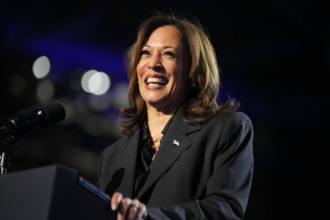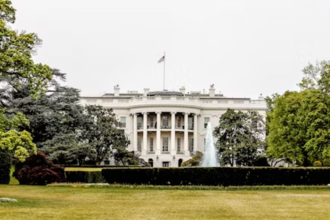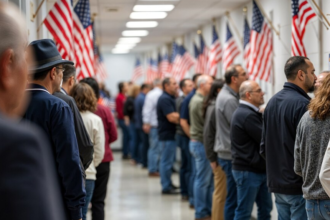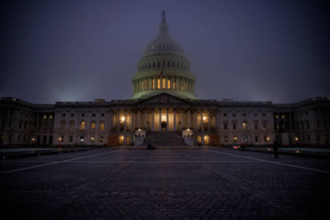As the US election draws near, citizens in China express apprehensions over the potential impact on Sino-American relations, fearing economic strain and military conflict regardless of who takes the White House.
- What Do Dancing and Diplomacy Reveal About Concerns in China?
- Are Fears of War and Rising Tensions Growing in China?
- What are the concerns regarding Trump vs. Harris in Taiwan?
- How Are Economic Tariffs Affecting China's Outlook on the US Election?
- Is There a Generational Divide in How China Views US Culture and Politics?
- What Lies Ahead for US-China Relations?
What Do Dancing and Diplomacy Reveal About Concerns in China?
Under the last fall light, a serene picture opens in the middle of Beijing’s Ritan Park as elders get together to dance. Among them is Mr. Xiang, a sixties guy who visits here often to pick up fresh dancing techniques with friends. The American ambassador to China resides just a few hundred meters away, a symbolic reminder of the distance—and closeness—between the two superpowers.
The group whirls to the beat of the music, but their minds usually stray to the US presidential contest. Competition among contenders could majorly impact China’s future, particularly in the face of growing tensions over trade, international relations, and Taiwan.
Mr. Xiang expresses concern over the growing hostile Sino-US relations. Our desire is peace. His fellow park visitors nod in agreement, suggesting a mix of dread and uncertainty about what might follow the US election, so he is not alone in this feeling.
Are Fears of War and Rising Tensions Growing in China?
Many assembled audience members are reluctant to provide their full names, which reflects the situation in China, where discussing the US president is allowed, but criticizing one’s government might cause problems. Still, everyone’s thinking appears to revolve around war. Concerns go beyond a possible conflict between Washington and Beijing; they also encompass the Middle Eastern and Ukrainian wars still under progress.
Mr. Meng, a guy in his 70s, expresses his support for Donald Trump based on his foreign policy approach. “He does not want to initiate or fight a war, even while he sanctions China economically. Mr. Biden starts more wars. Hence, more common people detest him, Meng said. “Mr. Biden supports Ukraine’s war; both Russia and Ukraine suffer terrible losses from the war.”
Even the younger generation chimes in. A group of sisters filming a dance performance for social media notes Trump’s pledge to bring the war in Ukraine under 24 hours of the presidency. ” About Harris, I know little about her, but we believe she travels the same road as President Biden, who backs war,” one said.
These points of view reflect messages frequently found in Chinese official media, which has been fast to criticize US foreign policy. Beijing has consistently urged a truce in Gaza, presenting its posture as supporting its “Arab brothers” while criticizing the US for its continuous support of Israel. On the matter of Ukraine, Chinese Foreign Minister Wang Yi charged Washington with taking advantage of the circumstances for personal benefit, claiming that China has been a “constructive actor” in world diplomacy.
What are the concerns regarding Trump vs. Harris in Taiwan?
Although some in China hope for a Trump triumph, many remain cautious of the previous president’s erratic behavior, especially concerning Taiwan, a hotspot in Sino-US relations. Asserting in a recent interview, “Taiwan ripped our chip business from us,” Trump has argued for Taiwan to “pay for its safety. How dumb are we? They are incredibly rich. Taiwan should pay us for defense.”
For most Chinese public and government, Kamala Harris, on the other hand, is yet unknown. According to some, she may provide a more diplomatic and steady approach to the difficult Taiwan problem. “I don’t like Trump,” a father observing his small son play in the park said. Between the US and China, I do not see a bright future; too many issues, such as the global economy and even the Taiwan issue, point to this. Tensions over Taiwan might develop into something considerably more difficult, he worries. I want nothing of this. I object to my son joining the military as well.
Beijing still gives the Taiwan problem priority since it claims the self-governing island as its own and has promised to reclaim it militarily if needed. President Xi Jinping said, “Reunification is inevitable.” Washington, meanwhile, tread carefully with its “One China policy,” acknowledging Beijing as the only Chinese government while also arming Taiwan with defensive weaponry and support. Declaring the US will defend Taiwan militarily, Joe Biden has gone so far as to contradict the long-held US posture of “strategic ambiguity.” Harris has eschewed such strong language, presenting a nebulous “commitment to security and prosperity for all nations.”
How Are Economic Tariffs Affecting China's Outlook on the US Election?
Beyond military issues, people’s mental state reflects the US election’s economic influence. China’s economy is already struggling with declining exports; both Trump and Biden have taken actions implying greater volatility to come. Trump has made it abundantly evident that should he be elected, he intends to put a 60% tariff on Chinese goods—something many in China worry could exacerbate their financial hardships.
Reflecting on many others, Mr. Xiang says, “I don’t think it will help the US if it taxes China.” The taxes will affect Americans and raise expenses for common citizens.
Levies on Chinese commodities were first implemented under Trump’s presidency; several levies now apply even under Biden’s presidency. Biden has lately singled out Chinese solar panels and electric cars, which Beijing finds as attempts to slow down its global economic power growth.
Is There a Generational Divide in How China Views US Culture and Politics?
Despite political unrest, China’s younger population looks to the US for trends, technologies, and pop culture. Two young women, Lily and Anna, twenty and 22 respectively, fervently discuss their love of American popular culture at Ritan Park. They wear their national clothes and boldly assert, “Our country is a very prosperous and strong country.” “But we also love the Avengers, especially Captain America,” they confess with a grin. Their playlists also include songs by Taylor Swift.
Not all young people are interested in entertainment. Notwithstanding the political unrest, seventeen-year-old Lucy dreams of one day studying in America. She mentions seeing Universal Studios once she graduates as she pedals on a just-acquired exercise bike in the park. “Harris’s candidacy marks an important step forward for gender equality, and it’s encouraging to see her as a presidential candidate,” Lucy says, expressing her enthusiasm about the idea of a female US leader.
Conversely, China has never had a female head of state and does not now have any women in the 24-member Politburo, the highest decision-making body of the Chinese Communist Party.
Although Lucy is aware of the tense relations between the two countries, she thinks greater personal contact among people will help to mend the relationships. She supports increased person-to-person interactions, a view that both governments hold despite obstacles. From 15,000 in 2011 to 800 today, the number of US students enrolled in China has sharply dropped.
What Lies Ahead for US-China Relations?
Although Chinese President Xi Jinping has said he wants to welcome 50,000 American students to China over the next five years, questions exist over the Chinese government’s complete commitment to this promise. US officials have reported cases whereby security personnel prevented Chinese citizens from engaging in public diplomacy initiatives.
Chinese students and professors have also experienced difficulties getting to the US; some have claimed being unfairly singled out by US border officers. Notwithstanding these challenges, Lucy is hopeful about her future and possibly better relations. She urges Americans to come and personally see China and dreams of one day visiting the US to further Chinese culture.
Lucy explains, ready to meet her family, “We may be a little bit reserved sometimes, and not as outgoing or as extroverted as US people.” We are welcome, nonetheless.
People of China keep dancing as the music in Ritan Park swells again, wondering what the future holds for their nation and its relationship with the United States.
Claims of Election Irregularities Spread Online Amid US Voting








